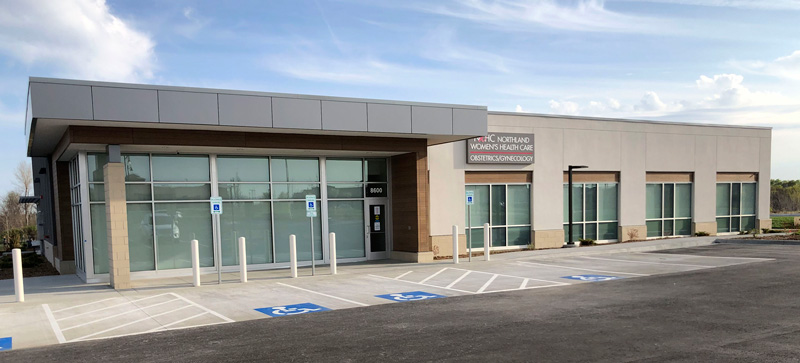How Obstetricians Lower Your Pregnancy Risk Factors
 Obstetricians or obstetrician-gynecologists (OB-GYNs) help women navigate pregnancy risk factors.
Obstetricians or obstetrician-gynecologists (OB-GYNs) help women navigate pregnancy risk factors.
Obstetrics covers every aspect of your pregnancy, from prenatal to postnatal care. Pregnancy risk factors vary according to age, medical condition, and even genetics. Luckily, only 8% of all pregnancies are high-risk.
Age-Related Pregnancy Risks
Research shows that women over 30 have higher risks for:
- Chromosome problems
- Miscarriages
- Birth defects
- Difficulties during labor.
Obstetricians give services that consider various factors, from lifestyle choices and health to age. The difference between a high-risk pregnancy and a low-risk one often comes down to age.
Teenage pregnancy: There are few medical risk factors. But other risks can come in the form of family conflict, substance abuse, or low self-esteem. Obstetricians can offer help and outsource to mental health professionals for further aid.
Mid-20s pregnancy: There are little to no risks to consider. Most people in their 20s are relatively healthy.
Early 30s pregnancy: Risk factors gradually begin to increase in one’s 30s.
Post 35 pregnancy: This is when fertility begins to decline rapidly. By age 40, there's a 5% chance of getting pregnant each month and the probability of genetic disorders is higher.
Some of the most common pregnancy complications that can occur for pregnant women past the age of 35 are:
- Birth defects (heart problems or Down syndrome)
- Miscarriage
- Low birth weight
- Premature birth
- Preeclampsia
- Chromosomal abnormalities
Genetic Pregnancy Risks
 An obstetrician can run a series of tests to determine you and your future baby’s health. When identifying genetic health risks, an OB can suggest genetic screening before childbirth.
An obstetrician can run a series of tests to determine you and your future baby’s health. When identifying genetic health risks, an OB can suggest genetic screening before childbirth.
A few of the genetic-based issues that run a higher probability for pregnancy risk include:
- Family history of genetic disorder: OB-GYNs test for inherited genetic diseases. These can include cystic fibrosis, hemophilia, Marfan syndrome, and sickle cell anemia.
- Prior childbirths with genetic disorders: Prior birth conditions can mean risk to the next one. Among these, down syndrome is the most common chromosomal abnormality, caused by an extra chromosome (21 in total).
- One parent with a chromosomal abnormality: If one parent has a chromosome abnormality, there's a bigger risk of giving it to the baby.
Having twins or higher order multiples increases the risk of complications like preeclampsia or preterm labor, even fetal anomalies and growth problems. This is when seeing your obstetrician or OB-GYN for guidance is highly recommended.
Pregnancy Risks Caused by Medical Disorders
 The most common medical disorders that obstetricians look for to identify risk include:
The most common medical disorders that obstetricians look for to identify risk include:
- Obesity
- HIV/AIDS
- High blood pressure
- Diabetes
- Polycystic ovary Syndrome (PCOS)
- Kidney disease
- Autoimmune disease
- Thyroid disease
Pre-existing conditions: Chronic health conditions like diabetes, hypertension, or heart disease increase risk.
History of pregnancy-related disorders: If you have a history of pregnancy-related disorders, like hypertension or high levels of protein in your urine, there’s a chance you’ll have the same issue during your subsequent pregnancy.
A doctor might recommend that you take baby aspirin to help with high blood pressure or suggest that you deliver the baby earlier than usual. As always, follow your personal doctor's recommendations.
Gestational Diabetes: Some women develop diabetes during their pregnancy, which can lead to birth complications. However, an obstetrician can provide counsel on the best course of action to deter risks and provide the groundwork for a healthy outcome.
Obstetrics Counseling Promotes a Healthier Pregnancy
 A licensed obstetrician will have you undergo clinical labs to test whether or not your pregnancy is low-risk, high-risk, or no risk whatsoever. Once they have enough information, they can suggest the best course of action to ensure the most optimal outcome for your pregnancy.
A licensed obstetrician will have you undergo clinical labs to test whether or not your pregnancy is low-risk, high-risk, or no risk whatsoever. Once they have enough information, they can suggest the best course of action to ensure the most optimal outcome for your pregnancy.
If something falls outside of their scope of expertise, an OB has an entire network of patient specialists to turn to. They can refer you to a medical specialist who can help in your specific circumstances.
To ensure a healthy pregnancy, a physician will likely suggest that you do the following:
- Maintain a healthy weight
- Avoid alcohol, drugs, and tobacco
- Schedule follow-up visits to your obstetrician throughout the year
- Take prenatal supplements
- Manage any pre-existing health conditions
Obstetricians Mitigate Risks Throughout a Pregnancy
Your OB can meet with you and monitor your progress at every stage of your pregnancy, including labor and postpartum stages. This adds an extra layer of safety and security to your pregnancy journey.
Working closely with an obstetrician can help you navigate even the most unexpected issues.
For example, if a pregnant mother isn't aware that she has Rh-negative blood and that her baby has Rh-positive, issues can occur:
- Fetal growth restriction
- Rh sensitization
- Unusual placenta position
- Newborn jaundice development
Services Obstetricians Provide to Reduce Risks
Depending on your unique situation, an OB may provide specialized or targeted fetal ultrasounds, prenatal cell-free DNA screening, and/or genetic screening.
They also offer referrals to other medical specialists and counseling on how best to proceed throughout your pregnancy.
Obstetricians Identify and Diagnose Risk-Causing Health Issues
 Obstetricians can diagnose reproductive conditions and take preventative measures to alleviate or deter any risks associated with them before they can have a significant impact on a pregnancy.
Obstetricians can diagnose reproductive conditions and take preventative measures to alleviate or deter any risks associated with them before they can have a significant impact on a pregnancy.
Some of the medical conditions they diagnose include polycystic ovary syndrome and endometriosis.
Obstetricians don’t just stop at medically related issues but examine lifestyle choices, too. They’ll look at everything from tobacco use to drug and alcohol consumption, including any diet or exercise habits you have or may need to improve.
Obstetricians Can Perform Preventative Surgeries
Remember this: OBs aren’t just physicians but also practicing surgeons.
To lower pregnancy risks at or near labor, an obstetrician can perform corrective surgeries:
- Hysterectomies
- Biopsies
- Tumor excisions
High-Risk Pregnancy Services for Kansas City, Missouri

Northland Women’s Healthcare in Kansas City offers a full range of health services dedicated to pregnant or soon-to-be pregnant mothers.
Our obstetricians can give you and your baby the best possible care before, during, and after birth. To schedule an appointment, call us at 816-741-9122 or schedule an appointment online.
